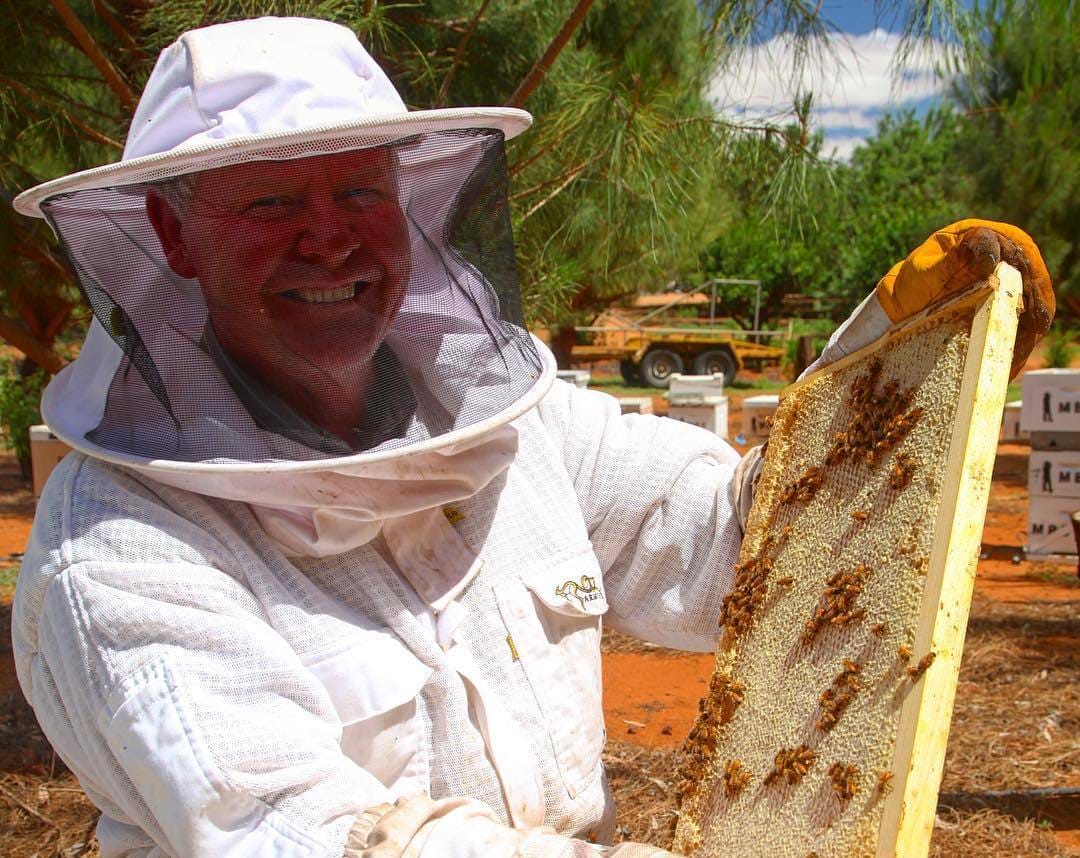Beekeeper’s varroa forecast... buzzkill
A RIVERLAND beekeeper predicts the varroa mite parasite devastating the New South Wales bee industry will be “everywhere” by this time next year. Varroa is a tiny external parasite of honey bees, feeding and living on adult honey bees, as well...

A RIVERLAND beekeeper predicts the varroa mite parasite devastating the New South Wales bee industry will be “everywhere” by this time next year.
Varroa is a tiny external parasite of honey bees, feeding and living on adult honey bees, as well as feeding and reproducing on larvae and pupae, causing malformation and weakening of honey bees.
South Australia has banned all New South Wales bees, hives and related products from entering the state.
Due to the events in New South Wales, an imposed standstill order is in place for all hives in the state, meaning they cannot be moved and all work on hives is prohibited.
The intent of the standstill order is to give authorities time to track hive movements and determine the locations of “at risk” hives outside the 50km lockdown zone.
Loxton’s Mark DeCaux, known as “The Bush Bee Man”, said varroa mite would probably have a small impact on the Riverland this year, but that by this time next year it will be a “bigger mess”.
“Varroa mite is basically in the whole world where bees are, except in Australia, so they have pretty much conquered the entire planet and we have managed to keep them out until now,” he said.
“The Department of Industries (DPI) in NSW are doing their best, but also burning a lot of hives, and there is a fair bit of heartache and upheaval in the bee industry right now.
“I don’t want to be too negative; the powers that be will make pollination happen but then going forward next year, it will be a bigger mess.
“The almond industry needs an extra 200,000 hives than what we have at the minute, and if everybody loses half their hives, I don’t know where that leaves everybody long term.”
Mr DeCaux said while it would be a “good idea” for the Riverland to decrease its reliance on bees from NSW, the problem is that NSW and lower Queensland are paradise for bees.
“They have so much more forage and better climate, that’s why they are the biggest keepers in the nation,” he said.
“Down here in South Australia, we are basically maxed out on good foraging areas to expand.
“It would be good if we could get the government on board and let us open up a few more parks for the bees.”
Mr DeCaux is hopeful Australia can learn from other countries that have suffered from varroa mite.
“I keep thinking that other countries have gone through this before, so at least we have information from them, and they have come out of it and are still operating,” he said.
“Fingers crossed they keep it over the border, and if not, we will figure it out going forward.
“I think agriculture in Australia, in general, is pretty resilient and we seem to make the best of whatever comes our way.
“I hope we can all work together and come out the other end stronger and better than we are at the minute.”





